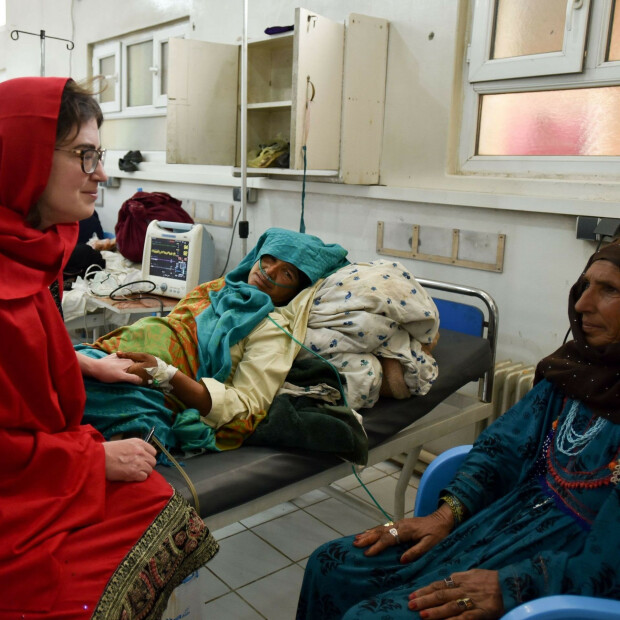
A list of things that matter
A list of things that matter
(2 January 2015)
Here are eight lessons about things that matter in Afghanistan:
1. Women matter.
Being on a plane to Afghanistan with other women is a breath of fresh air. Unlike my previous flights to Kabul, which were usually filled with stern-looking men who paid no attention to women, this flight was different. More than half of the passengers were women, some wearing colourful headscarves, others without. Their cheerful chatter made the flight much more enjoyable.
Surprised by their large number, I asked for an explanation. My Afghan neighbour, who spoke fluent English, put her book on politics aside and told me that there was a conference on the future of Afghanistan in London in December. All these women had participated as representatives of their local communities.
Never before have I wished for a safer flight as fervently as now. Not even because I was on the flight myself, but because nothing, absolutely nothing, should happen to this flight with these valuable passengers for the future of Afghanistan.
2. Sons matter.
Afghans only want boys. At first, I would get angry when a patient wasn't happy when the baby was a girl. But sometimes, I have to show understanding, like with our patient from three days ago. After a uterine rupture, we had to remove her uterus. She is the only patient so far for whom I truly feared she would die on the operating table. Although she survived, I could barely contain my emotions when I heard her heart-wrenching cries today. She had given birth to six living children in her life, but they were all girls. "My husband will take a second wife," she said, crying.
The next cesarean section was for a young girl. She was 1.40 meters tall and certainly no older than 16. She already needed a cesarean section for her first delivery because her pelvis was too small. Her baby died shortly after birth.
This time, we attempted a normal delivery, but children should not be having children. This baby couldn't pass through the narrow pelvis either. I fervently hoped that this baby would be a boy, but it turned out to be a perfectly healthy girl. This does not bode well for her future. In this culture, they want many sons, and waiting two years before getting pregnant again would not be an option for her. This girl will never be able to give birth normally and runs the risk of her cesarean scar tearing if she becomes pregnant too soon. Not hopeful prospects.
3. Coolers from Doctors Without Borders matter.
A cooler is not only for vaccines but also to transport foie gras from Kabul to Khost. For our French coordinator, there is no Christmas without foie gras. I wouldn't eat it at home in Belgium, but here I also put my other principles aside.
4. Knowing Pashto words for 'silence' and 'it's chaotic here' is important.
Sometimes, it can be a challenge to get a group of women to be quiet. In this hospital, we have 30-40 deliveries per day, and on busy days, even more than 50. Giving birth is solely a women's affair in Afghanistan, involving the daughter and usually her mother-in-law. Men are not involved. Prompting everyone to calm down is necessary on a regular basis.
5. Family is important.
We had a young girl, Fatima, who got married and became pregnant three months after her first menstruation. She had no idea how old she was, but she didn't seem older than 14. Usually, the mother-in-law accompanies people when they need to give birth, but here it was her mother. The mother, Malika, was fantastic. She talked her daughter through all the difficult moments and never left her side for a second. The girl gave birth without any problems, thanks in part to her mother's support and encouragement.
6. Physical contact matters.
Every day starts in this highly affectionate culture with kisses on the cheeks, hugs and touches (never with men, of course). Everyone also knows everything about each other. Privacy and secrets have no place here.
7. Women's rights matter.
I continue to be amazed every day at the lack of women's rights. According to a 2011 report by gender experts, Afghanistan is the worst country in the world for women. We see this every day here. Women are often victims of violence, including our local staff. Midwives and cleaners with bruises are unfortunately no exception.
8. Training and flexibility in the workplace are important.
Doctors Without Borders pays for free computer lessons and English classes for our Afghan staff. There is also 24-hour childcare provided for children under one year old. That wasn't there in the beginning, but since it's Afghan women here who take care of Afghan women, the only way to make sure they can keep working is to offer childcare and the possibility of breastfeeding during working hours. Belgian employers could also learn from this.
Séverine